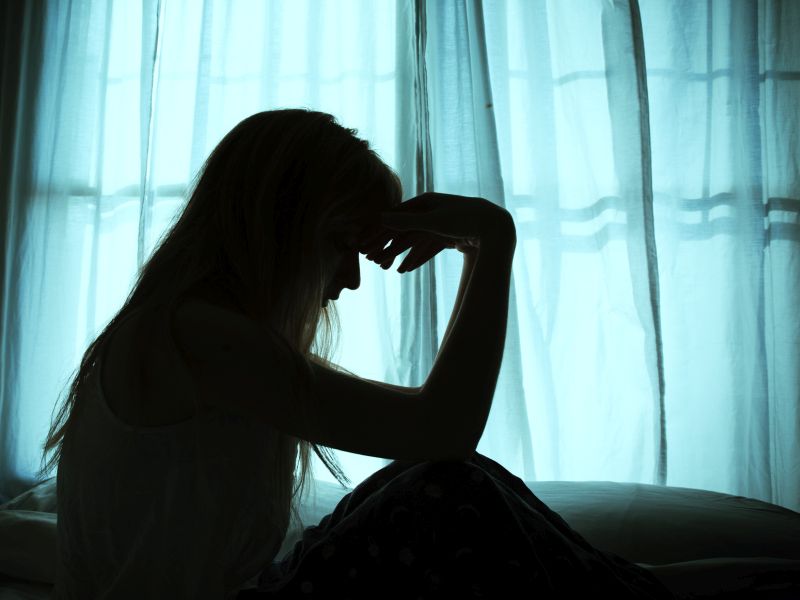

Poor Sleep May Worsen Suicidal Thoughts
Treating insomnia might help improve emotional well-being, researchers suggestWednesday, June 28, 2017

WEDNESDAY, June 28, 2017 (HealthDay News) -- Sleep problems may provide early clues about worsening suicidal thoughts in at-risk young adults as well as a potential way to intervene, a new study suggests.
"Suicide is the tragic outcome of psychiatric illness interacting with multiple biological, psychological and social risk factors," said lead author Rebecca Bernert. She is a suicidologist and assistant professor of psychiatry and behavioral sciences from Stanford University Medical School.
"Sleep disturbances stand apart from other risk factors because they are visible as a warning sign, yet non-stigmatizing and highly treatable. This is why we believe they may represent an important treatment target in suicide prevention," she said in a university news release.
How could sleep potentially prevent a suicide?
"Sleep is a barometer of our well-being, and directly impacts how we feel the next day. We believe poor sleep may fail to provide an emotional respite during times of distress, impacting how we regulate our mood, and thereby lowering the threshold for suicidal behaviors," Bernert explained.
The study included 50 university students, aged 18 to 23. All had a history of suicide attempts or recent thoughts of suicide ("suicidal ideation"). Sleep was monitored for one week.
Sleep problems were found to be a warning sign of worsening suicidal thoughts in the following days and weeks, the study showed. Variations in when students went to sleep and when they woke up was an especially strong warning sign.
The link between sleep problems and increased risk of suicidal thoughts remained even after the researchers took other factors into account. These factors included the level of depression, alcohol and drug use, and the severity of their suicidal symptoms at the start of the study.
"Sleep disturbances and suicidal ideation are both symptoms of depression, making it critical to disentangle these relationships and evaluate factors that stand alone to predict risk," Bernert said.
The study also found that students with significant variation in when they fell asleep had more insomnia and nightmares. Both of these sleep problems independently predicted more suicidal behaviors.
"Compared to other risk factors for suicide, disturbed sleep is modifiable and highly treatable using brief, fast-acting interventions. Because sleep is something we universally experience, and we may be more willing to openly talk about it relative to our mental health, we believe its study may represent an important opportunity for suicide prevention," Bernert explained.
The researchers are currently conducting suicide prevention studies using insomnia treatments.
The study was published online June 28 in the Journal of Clinical Psychiatry.
Suicide is the second leading cause of death among young adults in the United States, according to the U.S. Centers for Disease Control and Prevention.
SOURCE: Stanford University School of Medicine, news release, June 28, 2017
HealthDay
Copyright (c) 2017 HealthDay. All rights reserved.
News stories are written and provided by HealthDay and do not reflect federal policy, the views of MedlinePlus, the National Library of Medicine, the National Institutes of Health, or the U.S. Department of Health and Human Services.
- More Health News on
- Sleep Disorders
- Suicide
- Teen Mental Health



























.png)












No hay comentarios:
Publicar un comentario